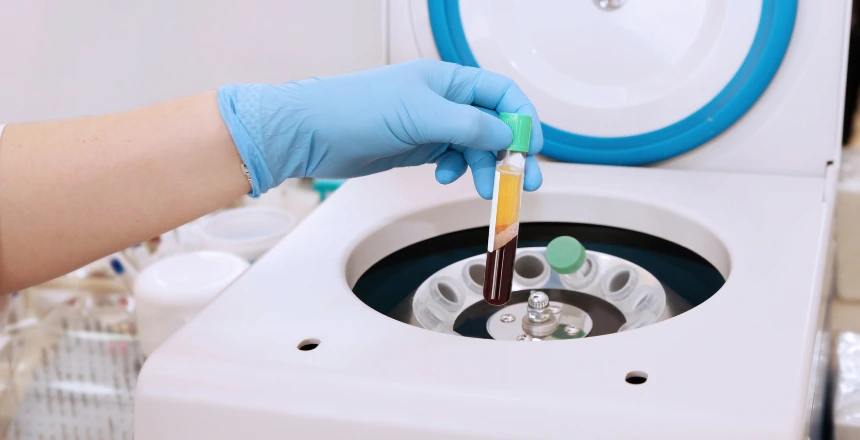As we age, our skin loses its youthful glow and can start to show signs of aging, such as fine lines, wrinkles, and age spots. If you want to rejuvenate your skin and improve its overall appearance, chemical peels are an excellent option. In this article, we’ll explore the benefits of chemical peels and how they can help you achieve a more youthful, glowing complexion.
1. What is a Chemical Peel?
A chemical peel is a cosmetic treatment that uses an acid solution to remove the outer layer of dead skin cells from your face. This treatment helps to smooth out fine lines and wrinkles, reduce the appearance of age spots and other types of discoloration, and improve the overall texture of your skin.
2. Different Types of Chemical Peels
There are three different types of chemical peels: superficial, medium-depth, and deep. Superficial peels are the mildest and only penetrate the outer layer of the skin. Medium-depth peels penetrate deeper and treat fine lines, wrinkles, and age spots more effectively. Deep peels are the strongest and are used to treat severe skin damage and deep wrinkles.
3. Benefits of Chemical Peels
3.1. Rejuvenated Skin
One of the primary benefits of chemical peels is that they rejuvenate your skin by removing dead skin cells and promoting the growth of new ones. This helps to improve your skin’s texture and tone, making it look more youthful and vibrant.
3.2. Improved Appearance of Fine Lines and Wrinkles
Chemical peels can also help to reduce the appearance of fine lines and wrinkles by stimulating collagen production in the skin. This can help to fill in fine lines and wrinkles, making them less noticeable.
3.3. Reduced Appearance of Age Spots and Other Discoloration
Age spots and other types of discoloration can make your skin look dull and uneven. Chemical peels can help to reduce the appearance of these types of skin imperfections by removing the outer layer of skin that contains the discoloration.
3.4. Reduced Acne Scars
Chemical peels can also help to reduce the appearance of acne scars by removing the outer layer of skin that contains the scar tissue. This can help smooth out your skin’s texture and make the scars less noticeable.
4. What to Expect During a Chemical Peel
Aftercare is a crucial part of the chemical peel process, as it ensures that your skin heals properly and that you achieve the best possible results. Here are some tips to follow after your chemical peel:
- Avoid sun exposure: Sun exposure can be harmful to your skin after a chemical peel, so it’s important to avoid direct sunlight for the first few days after your treatment. If you must be outside, wear a wide-brimmed hat and apply sunscreen with an SPF of at least 30.
- Use gentle skincare products: During the healing process, it’s important to use gentle skincare products that won’t irritate your skin. Avoid using harsh exfoliants or scrubs, and instead, opt for gentle cleansers and moisturizers.
- Avoid picking at your skin: It can be tempting to pick at the peeling skin after a chemical peel, but this can cause scarring and slow down the healing process. Instead, let the skin peel naturally and use a gentle moisturizer to keep your skin hydrated.
- Stay hydrated: Drinking plenty of water can help to keep your skin hydrated and promote the healing process after a chemical peel. Aim to drink at least 8 glasses of water per day.
- Avoid strenuous exercise: It’s best to avoid strenuous exercise for a few days after your chemical peel, as sweating can irritate your skin and slow down the healing process. Instead, opt for light exercises such as walking or gentle yoga.
- Follow your esthetician’s instructions: Your esthetician will provide you with specific aftercare instructions based on your individual needs and the type of peel that you received. It’s important to follow these instructions closely to ensure that your skin heals properly.
5. Who is a Good Candidate for a Chemical Peel?
Chemical peels are generally safe for most people, but they may not be suitable for individuals with certain skin conditions or sensitivities. Your esthetician will assess your skin and medical history to determine whether or not you are a good candidate for a chemical peel.
6. How Often Should You Get a Chemical Peel?
The frequency of chemical peels depends on your individual skin type and the specific type of peel that you are receiving. Your esthetician will recommend a treatment plan based on your individual needs and goals.
7. Aftercare Tips for Chemical Peels
After your chemical peel, taking good care of your skin is important to ensure it heals properly. Your esthetician will provide you with aftercare instructions, which may include avoiding sun exposure, using gentle skincare products, and avoiding strenuous exercise for a few days.
8. Conclusion
In conclusion, chemical peels are an excellent option for anyone looking to rejuvenate their skin and achieve a more youthful, glowing complexion. Whether you’re looking to reduce the appearance of fine lines and wrinkles, age spots, or acne scars, a chemical peel can help you achieve your goals. With the right aftercare, you can enjoy the benefits of a chemical peel for months to come.
9. FAQs
9.1. Is a chemical peel painful?
Most people experience a mild tingling or burning sensation during a chemical peel, but it is generally not painful. Your esthetician will work with you to ensure you are comfortable during the treatment.
9.2. How long does a chemical peel take?
A chemical peel typically takes about 30-60 minutes to complete, depending on the type of peel that you are receiving.
9.3. Can I wear makeup after a chemical peel?
It’s best to avoid wearing makeup for the first few days after a chemical peel to allow your skin to heal properly. Your esthetician will provide you with aftercare instructions, including when it’s safe to start wearing makeup again.
9.4. Are there any risks associated with chemical peels?
Chemical peels are generally safe, but there is a risk of side effects such as redness, peeling, and scarring. Your esthetician will assess your skin and medical history to determine whether or not you are a good candidate for a chemical peel.
9.5. How can I find a qualified esthetician to perform a chemical peel?
Finding a qualified and experienced esthetician to perform your chemical peel is important to ensure that you receive safe and effective treatment. You can ask for recommendations from friends or family or search for licensed estheticians online. It’s also a good idea to read reviews and check their qualifications before scheduling an appointment.






